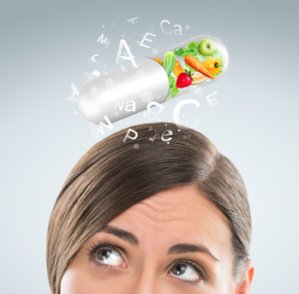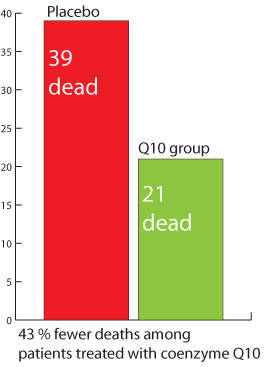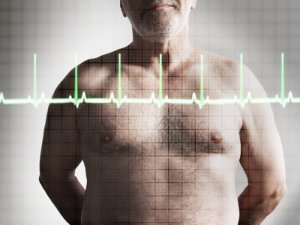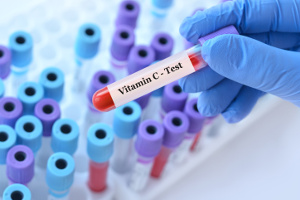 Essential nutrients are those vitamins, minerals, fatty acids and amino acids that the body needs in order to function. We can't do without these substances and there are no other substances that can replace them. It is possible to live a full, long life without ingesting for example, ginseng, rose hips extract and medicine, but it is not possible to survive without getting all the essential nutrients. Deficiency of these substances will inevitably lead to nutritional deficiencies.
Essential nutrients are those vitamins, minerals, fatty acids and amino acids that the body needs in order to function. We can't do without these substances and there are no other substances that can replace them. It is possible to live a full, long life without ingesting for example, ginseng, rose hips extract and medicine, but it is not possible to survive without getting all the essential nutrients. Deficiency of these substances will inevitably lead to nutritional deficiencies.
- Essential in this context means vital or lifesaving.
- Nutrient is any substance which when ingested contributes to the body's metabolism, function or growth.
- Non-essential nutrients are all the nutrients that the body itself can form.
 A strong heart is vital to your health. Lack of cardiac strength is exactly what causes people with heart failure to deteriorate so rapidly. For decades, digoxin has been the most commonly used heart-strengthening drug but a recently published study has shed light a whole new heart-boosting compound that is particularly interesting becauseit reduces mortality, strengthens the heart, and does not appear to have side effects.
A strong heart is vital to your health. Lack of cardiac strength is exactly what causes people with heart failure to deteriorate so rapidly. For decades, digoxin has been the most commonly used heart-strengthening drug but a recently published study has shed light a whole new heart-boosting compound that is particularly interesting becauseit reduces mortality, strengthens the heart, and does not appear to have side effects.
 The Danish cardiologist and researcher, Chief Physician Svend Aage Mortensen,from the Copenhagen Heart Centre at Rigshospitalet, is very optimistic about a new type of therapy for chronic heart failure where a natural compound is used to increase energy levels in the heart muscle.
The Danish cardiologist and researcher, Chief Physician Svend Aage Mortensen,from the Copenhagen Heart Centre at Rigshospitalet, is very optimistic about a new type of therapy for chronic heart failure where a natural compound is used to increase energy levels in the heart muscle.
You may want to consider taking a Q10 supplement
 Statins do more than lower your cholesterol. They have an array of side effects but you can effectively counteract them by taking coenzyme Q10 together with your drug.
Statins do more than lower your cholesterol. They have an array of side effects but you can effectively counteract them by taking coenzyme Q10 together with your drug.
Has your physician told you to take cholesterol-lowering statins? Well, it has to be said that these drugs are highly effective for lowering cholesterol. What you may not know, however, is that statins also lower levels of coenzyme Q10, a vital substance which all your cells need to produce energy. Coenzyme Q10 and cholesterol are synthesized in the liver and share the same biochemical pathway, and statins work by blocking this pathway. When levels of coenzyme Q10 go down, you risk a number of side effects that occur when the body's cells suddenly produce too little energy to function normally.
 Essential nutrients are those vitamins, minerals, fatty acids and amino acids that the body needs in order to function. We can't do without these substances and there are no other substances that can replace them. It is possible to live a full, long life without ingesting for example, ginseng, rose hips extract and medicine, but it is not possible to survive without getting all the essential nutrients. Deficiency of these substances will inevitably lead to nutritional deficiencies.
Essential nutrients are those vitamins, minerals, fatty acids and amino acids that the body needs in order to function. We can't do without these substances and there are no other substances that can replace them. It is possible to live a full, long life without ingesting for example, ginseng, rose hips extract and medicine, but it is not possible to survive without getting all the essential nutrients. Deficiency of these substances will inevitably lead to nutritional deficiencies.







 Most people are unaware of vitamin C’s key role in mental health and mood. According to a large population study that is published in Frontiers in Nutrition, having higher levels of
Most people are unaware of vitamin C’s key role in mental health and mood. According to a large population study that is published in Frontiers in Nutrition, having higher levels of 



 The Danish cardiologist and researcher, Chief Physician Svend Aage Mortensen,from the Copenhagen Heart Centre at Rigshospitalet, is very optimistic about a new type of therapy for chronic heart failure where a natural compound is used to increase energy levels in the heart muscle.
The Danish cardiologist and researcher, Chief Physician Svend Aage Mortensen,from the Copenhagen Heart Centre at Rigshospitalet, is very optimistic about a new type of therapy for chronic heart failure where a natural compound is used to increase energy levels in the heart muscle.
 "After about one week of taking the Q10 supplement I could feel a huge difference," says 23-year old Alan Piccini, who has been suffering from extreme fatigue and muscle aches ever since he was a child.
"After about one week of taking the Q10 supplement I could feel a huge difference," says 23-year old Alan Piccini, who has been suffering from extreme fatigue and muscle aches ever since he was a child. “Taking capsules with co-enzyme Q10 has freed me of the severe side effects of my cholesterol lowering medicine,” Mrs Franken explains.
“Taking capsules with co-enzyme Q10 has freed me of the severe side effects of my cholesterol lowering medicine,” Mrs Franken explains.